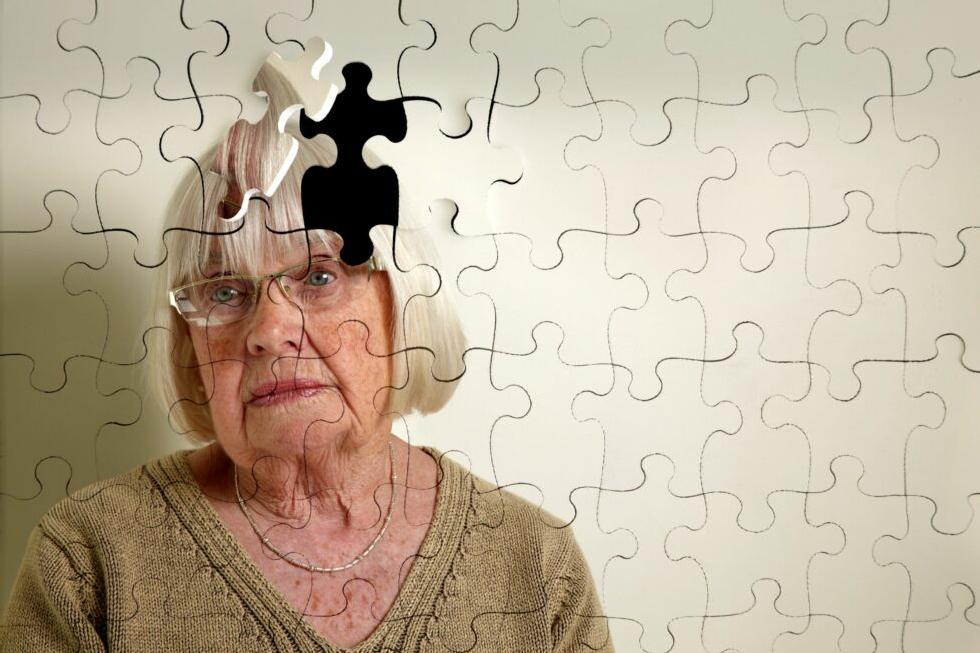
Dementia Symptoms in Your Elderly Parents
No one knows your parents' personalities, hobbies, or quirks like you do. If you notice unusual behavior or experience a persistent feeling that something is off, there's a good chance it is. Aging is a well-known risk factor for Alzheimer's disease and other forms of dementia. In fact, the risk of developing Alzheimer's disease doubles every five years in people 65 and older.
Learning to spot key dementia symptoms in aging parents and documenting the early stages of dementia can make a big difference. Your observations could provide helpful insight to doctors, which can lead to a quicker and more accurate diagnosis.
The warning signs may vary by individual, but the following eight dementia behaviors are indicators for you to watch for.
1. Difficulty remembering or trouble finding words
It's normal for older adults to have lapses in thought here and there. But showing signs of forgetfulness every day is an early warning sign of dementia. If your mom is consistently losing track of her thoughts mid-sentence, or if your dad has trouble finding words in casual conversations, these are dementia signs to note.
2. Inability to learn something new
If your mom's favorite activity is cooking but she is struggling to use a new appliance or follow a new recipe, dementia may be the culprit. If you notice your parents avoiding new activities or struggling to grasp a new concept, make note of it.
3. Struggling to manage finances
Do you notice your dad failing to manage bills or taxes properly? Does your mom struggle to balance her checkbook? Watch for bills piling up or other problem-solving skills diminishing, as these are common behaviors of dementia.
4. Losing track of time
If your elderly parent continues to forget the day, month, year, holidays, or other important dates, this is a red flag. Write down what they forget and how often the lapses occur.
5. Poor judgment and decision-making
Have you noticed any behaviors or situations that seem out of the ordinary? For example, has your mom been spending more money than normal? Has your dad stopped wearing his seatbelt? If you begin to notice dangerous behavior or unsafe habits, write it down and talk to your parent's doctor.
6. Problems remembering commitments
Reoccurring memory loss is an early sign of dementia. Everyone forgets something occasionally, but if it happens regularly, be sure to document when and how often.
For example, take note if your parents regularly forget:
- Dentist or doctor's appointments
- Dinner plans with friends and family
- Maintenance appointments for the car
7. Losing interest in favorite activities
Has your loved one stopped pursuing or lost interest in their favorite hobbies? Did your mom read or garden daily but no longer make an effort? Pay attention to unusual behaviors ⎯ especially if it doesn't seem related to a physical health problem.
8. Repeating themselves
Have you noticed verbal repetition in your parent's thoughts or phrases? It can be as simple as saying the same compliment over and over, such as, "I really love those picture frames you gave me."
If your parent repeats stories, questions, thoughts, or jokes daily, or every other day, be sure to note the frequency.
Physical signs of dementia in elderly relatives
In addition to the eight major dementia symptoms above, many seniors will exhibit physical signs of cognitive decline. Some warning signs of cognitive. Some warning behaviors include:
- Agitation - Mood changes that include confusion, irritability, depression, or anxiety are common in people with dementia. Your parent may become easily upset in different or new situations.
- Wandering - People with dementia sometimes get lost in familiar places or walk aimlessly. Dementia wandering can happen for many reasons, including fear, anxiety, boredom, or an urge to follow past routines.
- Sleep problems - Insomnia and sundown syndrome are common problems in people with dementia. Your parent may have problems falling asleep or wake up several times throughout the night. They may also feel more restless at the end of the day, which is often attributed to a condition called "sundowning." Doctors believe sundowning can be triggered by exhaustion, excitement, or changes in the biological clocks of people with dementia. Managing sleep is an important aspect of taking care of elderly parents with dementia.
- Eating problems - Your parent may forget to eat or drink. Medications to treat dementia symptoms can also affect your loved one's appetite or interfere with food taste. Ensuring your loved one with dementia gets adequate fluids and nutrition can be a challenge.
- Incontinence - As dementia progresses, your loved one may lose bladder and bowel control. Changes in the environment may also lead to accidents because someone with dementia may not be able to find the bathroom or get there in time.
Document and share dementia behaviors with a doctor
Track signs of dementia using your phone or a journal. It's important to share specific examples with a doctor.
If you're worried about upsetting a loved one, submit your observations to their physician privately in writing. Keep in mind that HIPAA authorization is not needed for you to share concerns with a parent's health professional.
Include details about:
- When you first noticed dementia behavior
- Specific dementia symptoms your parents are exhibiting
- How often they struggle and when it happens
- Changes in their normal routine or behavior
It's important to find professional help after noticing early symptoms of dementia.
Find the right doctor - Doctors specializing in dementia will ask about problems related to common dementia behaviors. You should look for a physician whose specialty is geriatrics, neurology, or clinical psychiatry.
Communicate observations in detail - The more details you can share regarding warning signs of dementia, the easier it can be for a doctor to determine the cause and tests needed for a diagnosis. The doctor can also develop more effective treatment options for dementia symptoms based on the specificity of the data collected.
Prepare for a diagnosis - Dementia diagnoses are determined through a series of steps. There are many different possible tests to rule out other health conditions like a vitamin B12 deficiency, brain tumors, thyroid conditions, and more, as some of these conditions also may cause dementia symptoms. A dementia evaluation can include:
- Reviewing a person's medical history
- Physical or mental exam
- Lab tests
- Brain imaging
Stay proactive - Continue to observe and take notes to help you and medical professionals determine the best care and treatment options for your mom or dad.
Learn about our Alzheimer's, dementia, and memory care services in Eau Claire.

Related Articles

What is Alzheimer's and How to Help People with It

Redirecting a Loved One With Dementia

Dealing with Sleep Problems and Dementia

Holiday Gifts for Loved Ones in Senior Living

How to Tell Family Members That Mom or Dad Have Alzheimer's Disease

Communicating With A Loved One Who Has Dementia

Sibling Rivalry: Why Can't We Agree on Our Elderly Parents' Care Needs?

